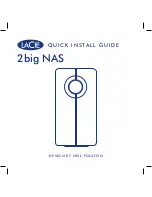
47
Chapter 4: Motherboard Connections
Chapter 4
Motherboard Connections
This section describes the connections on the motherboard and provides pinout definitions.
Note that depending on how the system is configured, not all connections are required.
The LEDs on the motherboard are also described here. A motherboard layout indicating
component locations may be found in Chapter 1.
Please review the safety precautions in Appendix B before installing or removing components.
4.1 Node Rear Panel Controls
Power Button/LED
There is an On/Off button (SW2) with integrated LED on the I/O panel of each node. The
function is described in Chapter 1.
Unit Identifier Switch/UID LED Indicator
A Unit Identifier (UID) switch and an LED Indicator are located on the motherboard. The UID
switch is located at JUIDB1, which is next to the VGA port on the I/O panel. The UID LED
(LED5) is located next to the UID switch. When you press the UID switch, the UID LED will
be turned on. Press the UID switch again to turn off the LED indicator. The UID Indicator
provides easy identification of a system unit that may be in need of service.
Note:
UID can also be triggered using IPMI on the motherboard. For more information on IPMI,
please refer to the IPMI User's Guide posted on our website at
http://www.supermicro.com
.
4.2 Headers and Connectors
Power Connectors
The X10SRD-F motherboard is powered through the slide-in connection at the front of the
board. No connecting cables are necessary.
Data and Management Connectors
Universal Serial Bus (USB) Ports
There are two Universal Serial Bus 2.0 ports (USB0/1) supported by JKVM1 An additional
USB 3.0 type "A" port (USB2) is located on the motherboard. Cables are not included.
SAS/SATA Ports
















































